Iranian Professor's Expulsion Sparks Student Outcry
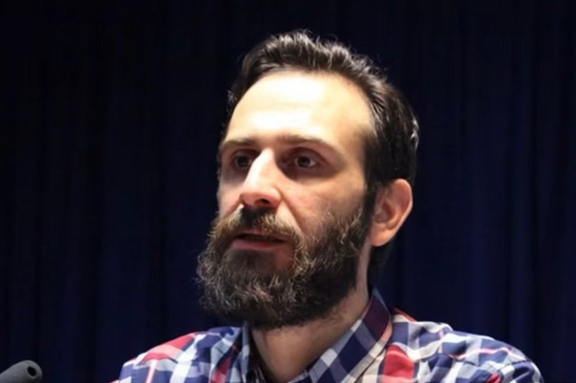
Amid faculty suspensions for supporting student protests, Tehran’s Allameh University has formally terminated a renowned sociology professor.

Amid faculty suspensions for supporting student protests, Tehran’s Allameh University has formally terminated a renowned sociology professor.
After being issued with a "Collaboration Termination" letter, Dr. Mehdi Khoiee, a professor at the university for the past seven years, posted about the termination on his Instagram account. "I am left pondering where to channel my grievances against this glaring injustice,” he wrote
The termination follows a growing trend of academic staff being subject to punitive measures for their perceived association with student dissent.
Students from the Faculty of Social Sciences at the university voiced their outrage at his expulsion in an official statement, which drew attention to the mounting wave of dismissals ranging from student suspensions to the abrupt expulsion of committed faculty members like Dr Khoiee.
Moreover, the statement issued by the student body drew attention to the case of another academic, Professor Armin Amir, who met a similar fate due to his empathetic stance towards protesting students.
This incident is part of a broader pattern affecting the academic community, whereby educators from institutions across the country have faced suspension or expulsion due to their solidarity with the students' expression of dissent.
Student unions nationwide view these actions as part of a wider initiative to cleanse universities and criticize the regime for trying to dismantle a bastion of free inquiry and discourse.
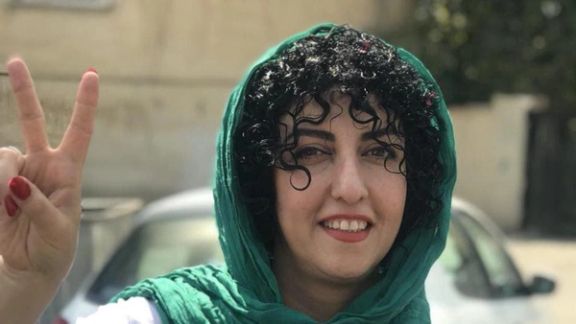
Imprisoned civil and human rights activist Narges Mohammadi has warned against increased violence against female prisoners inside the women's ward of Tehran’s notorious Evin prison.
In a letter published on Thursday, Mohammadi revealed disturbing details of physical harassment, abuse, and assault inflicted on women inmates over the past three months, in the lead up to the anniversary of the nationwide protests.
Mohammadi's letter, posted on her Instagram account, sheds light on a distressing pattern of escalating violence, extending from the arrest process to the transfer to prison facilities. She described detainees arriving at the Evin Prison with "bruised and battered heads, faces, and bodies," and expressed concern over the harrowing consequences if this distressing trend persists.
Having previously issued multiple letters highlighting the dire conditions within prisons and detention centers, Mohammadi specifically raised the alarm about violence targeting detainees and called for an investigation into allegations of "sexual assault against detained women."
Mohammadi labelled the acts of brutal and lethal violence as "systematic" and "intentional", orchestrated by the government against female protestors, aimed at instilling fear and terror.
Underscoring her point, Mohammadi detailed an incident where she witnessed the transfer of an injured woman with "bruised shoulders and hands" repeatedly uttering the words, "My leg is broken." This girl claimed that there were no surveillance cameras in her cell during the time of the beatings.
In her concluding remarks, Mohammadi sent a stern warning to the Islamic Republic, saying that the escalation of violence would not deter the unwavering determination of the people to liberate themselves from the grip of the oppressive religious regime.
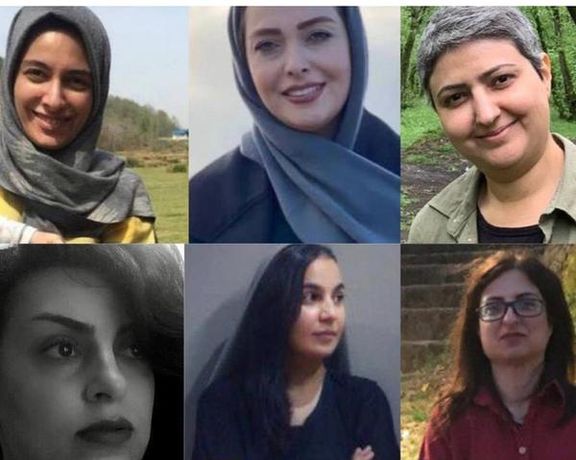
Iran's security forces have apprehended 11 citizens, including prominent women's rights activists, in a wave of arrests across several cities in Gilan province.
On Wednesday, security forces arrested and detained 11 citizens including five women's rights advocates, a photographer, a poet, a graphic designer, and three pharmacists.
Grounds for the arrests, which took place in the cities of Rasht, Fuman, Anzali, and Lahijan, remain unclear and no details have emerged of the prisoners’ wellbeing. Reports indicate that the majority were apprehended after security forces raided their homes.
This is the latest in a string of government clampdowns on activists, students, educators, and writers in the lead-up to the September 16th anniversary of Mahsa Amini’s death at the hands of police whilst in custody, which sparked nationwide protests.
In recent weeks, a significant number of university students across Iran have reported receiving anonymous phone threats and summonses by security agencies. Similar reports have been made by families of victims who have died in uprisings, particularly on the anniversaries of deaths. These threats are assumed as efforts to deter commemorative gatherings.
Additionally, there have been reports of security pressures exerted on families of the victims of the uprising particularly occurring on the anniversaries of deaths. perceived as efforts to deter commemorative gatherings.
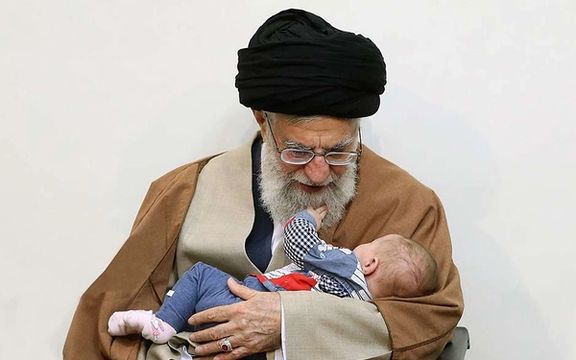
A new ban in Iran on screening kits for congenital anomalies has worried many who fear a sudden surge in the number of children being born with birth defects.
The health ministry’s food and drug administration website announced last week that it will no longer issue permits for production or imports of pregnancy associated plasma protein-A (PAPP-A) and free beta human chorionic gonadotropin (Beta-hCG) test kits.
Media have also reported that the ministry has been refusing to allow production or importation of enzyme linked immunosorbent assay (ELISA) tests.
These tests usually carried out during the first trimester of pregnancies are used to identify and assess the risk of various congenital conditions such as Down Syndrome and fetal aneuploidy (chromosomal anomalies) such as trisomy.
When asked about the discontinuation of the production and imports of these kits on Monday, the ministry spokesman, Pedram Pak-Ayeen, claimed that there was no ban and fetal screening has only been “standardized”.
The spokesman’s denial of the ban does not seem to be convincing to many including genetics experts and women’s rights activists who say denying them to women to preclude possibility of abortion is interfering in people’s personal decisions and violates women’s right to their bodies.
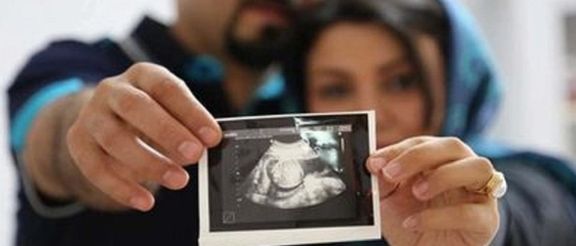
Calling the ministry’s decision “shocking”, Dr Mohammad-Amin Tabatabei, a member of the board of directors of the Iranian Genetics Society, said Monday that Iranians will be facing a greater risk of babies born with congenital and genetic anomalies due to the ban.
Tabatabaei stressed that the ministry has not consulted the genetics society and that the society will officially protest to the decision soon and demand a re-evaluation and warned that the ban could result in illegal imports of “notoriously expensive kits of uncertain standards.”
“Until now we had underground abortions, now we are going to have underground screening too,” a medical professional, Dr Mohammad Mir-Mohammadkhan, said in a post on X (former Twitter) Sunday.
Abortions have always been illegal in Iran, but termination was allowed during the first 18 weeks of pregnancy if the fetus was diagnosed with genetic disorders or carrying the fetus to term threatened the mother’s health or life.
On April 17, Soleiman Haydari, an official of the health ministry, told the Iranian Students News Agency (ISNA) that annually as many as 10,000 abortions were legally carried out.
In the past ten years the Iranian healthcare system has hugely limited screening tests and legal abortions and completely stopped its decades-old family planning programs.
Iran’s primary healthcare program had introduced several screening tests In 1991 that were routinely carried out as part of the existing mandatory premarital blood tests to prevent and control non-communicable diseases which have now been abandoned.
The government has also banned the sale of contraceptives and taken tough action against doctors and midwives who assisted terminations outside the healthcare system and shut down their clinics.
In July 2022 the health ministry announced that it had established a portal for medical professionals to register all pregnancies as a preventative measure against illegal abortions.
Iran's Supreme Leader Ali Khamenei believes efforts to increase the country's population are among the most urgent duties and essential policies of the Islamic Republic as the leading Shia country in the Muslim world and has repeatedly demanded that the population increase to 150 million.
The childbirth rate in Iran has been steadily declining over the past few decades. In the early 1980s, the population growth rate reached 4.8 percent. This rate has dropped to below one percent in the past decade.
Iran's population has doubled from around 40 million in the early 1980s to 84 million, but a declining birth rate means the median age at 32 is about the same as Saudi Arabia at 31.8, but higher than Iraq at 21.
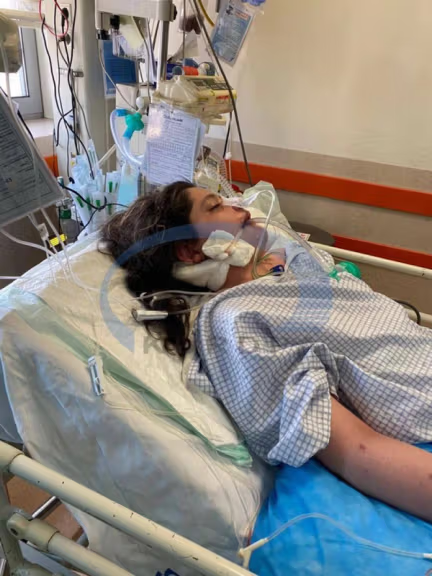
One of Iran’s hardline conservatives has slammed officials for apologizing for Mahsa Amini’s death in custody of hijab police.
In an interview on state TV, Mohammad Sadegh Koushki, a Tehran University professor, said apologies for Amini’s highly publicized death are an "incorrect move."
Koushki said, "What prompts the need for apologies? [The death of Mahsa Amini] was an unintended outcome. It is indeed the subsequent apologies of certain high-ranking figures that have inadvertently exacerbated the situation."
He added that fatalities to detainees during detention and interrogation are inherently "very natural."
Currently, no officials from the Islamic Republic have formally extended apologies for Mahsa Amini's death or for the loss of numerous other lives even in the wake of nationwide protests.
During a televised interview, Mohammad Bagher Ghalibaf, the Speaker of the Parliament, indicated that he had formally requested an apology from the law enforcement forces. However, no formal apology has been issued to date.
In a conversation with Mahsa Amini's family, President Ebrahim Raisi, abstained from issuing an apology. Instead, he committed to clarifying the full "dimensions" of the circumstances surrounding Amini's death—an assurance that, as of the present date, remains unfulfilled.
Mahsa Amini's death in custody was not an isolated incident. Sattar Beheshti, an outspoken blogger, and Zahra Kazemi, an Iranian-Canadian photographer, and many others, also lost their lives as a result of aggressive interrogations carried out by agents of the Islamic Republic. The true number of deaths has not been not officially recorded.
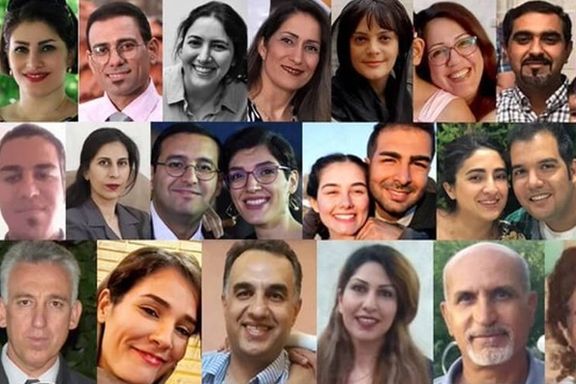
Baha'is around the world are protesting against a recent surge of repression against the Baha'i community in Iran
Nearly 60 members of the minority faith group have been arrested or imprisoned in recent weeks, and 180 further members have been subjected to a relentless campaign of torture.
On Tuesday, the global Baha'i community confirmed that the detained individuals include a 90-year-old man, Jamaloddin Khanjani, who has a history of imprisonment in Iran due to his religious beliefs. He was apprehended along with his daughter, Maria.
Khanjani's previous decade-long imprisonment, from 2008 to 2017, was a result of his affiliation with Yaran, an administrative group established in response to the prohibition of official Baha'i institutions in Iran. The Yaran group, which was dissolved in 2008, sought to cater to the spiritual needs of the community. Each of it seven members were initially handed 20-year sentences, which were later reduced to 10 years and were released in 2018.
Highlighting the escalating repression, Baha'is around the world highlighted the cases of Mahvash Sabet and Fariba Kamalabadi, former members of Yaran. Both women, who were arrested on July 31, 2022, recently received confirmation of their 10-year prison sentences from an appeals court. Sabet, 70, who suffers from severe physical ailments, was among those sentenced. Afif Naimi, another Yaran member who also faced significant health issues, was sentenced to seven years imprisonment.
Meanwhile, the government's crackdown extended to the arrest of nine additional Baha'is on August 13. Accused of disrupting the drug supply, these individuals, including pharmacy owners and employees, had their businesses sealed and closed.